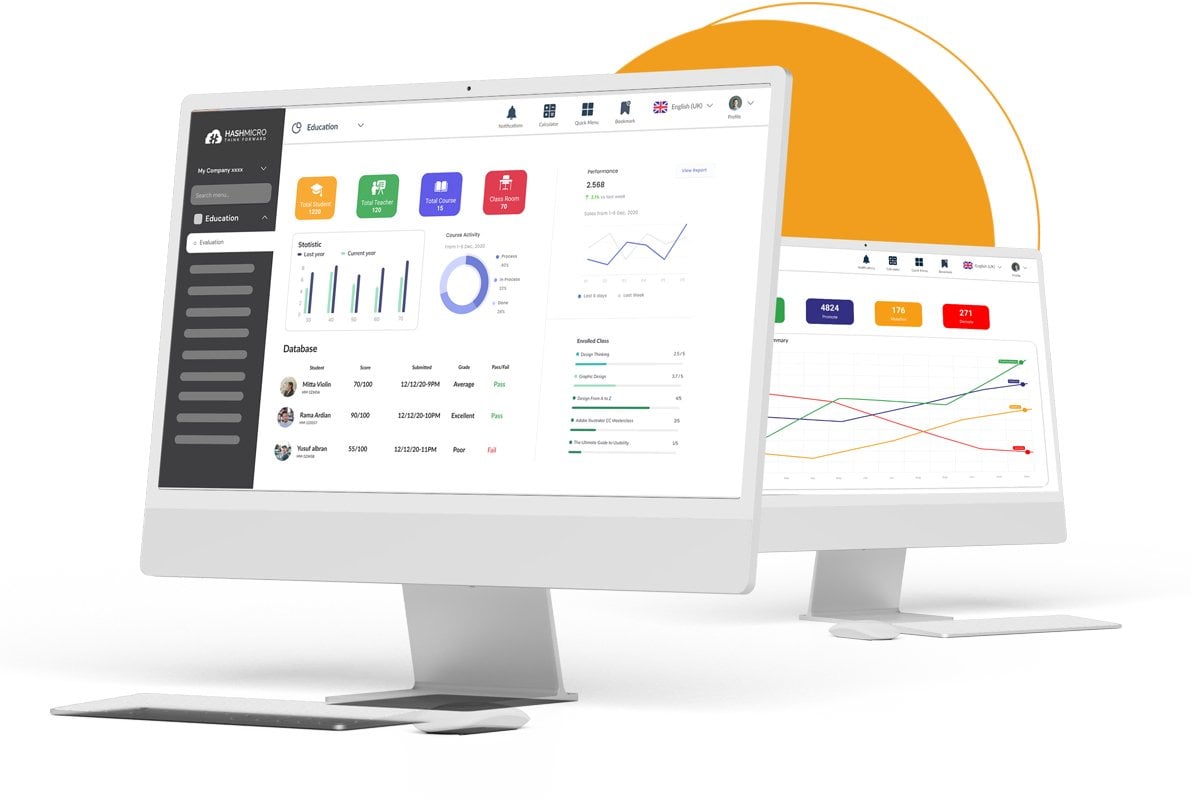Introduction: Navigating through Digital Transformation
In an epoch where data is paramount, employing a robust school management system is imperative to seamlessly organize, retrieve, and manage information. Software for school management is pivotal in transcending traditional barriers, offering a cohesive, integrated, and interactive platform for all stakeholders.
- Centralized Data Management
- Unified Data Repository
Deploying a centralized system to store, manage, and retrieve data, enhancing accessibility and data integrity.
- Real-Time Data Accessibility
Ensuring real-time access to data for stakeholders, facilitating informed decision-making and transparent communication.
- Efficient Administrative Workflow
- Automated Administrative Tasks
Leveraging automation to proficiently manage tasks like admissions, timetable creation, and attendance tracking.
- Scalable Solutions
Employing scalable administrative solutions that adapt to the expanding needs and size of the institution.
- Streamlining Financial Operations
- Automated Fee Collection
Incorporating automated fee collection and management systems to ensure accuracy and transparency in financial dealings.
- Financial Reporting
Utilizing dynamic reporting tools to generate comprehensive financial reports, aiding in effective budgeting and financial planning.
- Enhanced Stakeholder Communication
- Unified Communication Platforms
Facilitating transparent and streamlined communication among educators, students, and parents through integrated platforms.
- Instant Notifications
Deploying instant notification systems to ensure stakeholders are abreast of important information and updates.
- Optimizing Resource Allocation
- Resource Management
Implementing smart resource management modules to optimize the allocation and utilization of physical and human resources.
- Inventory Management
Employing automated inventory management systems to monitor, order, and manage school inventory proficiently.
- Comprehensive Student Management
- Holistic Student Records
Maintaining a comprehensive digital record of students, encapsulating academic, co-curricular, and behavioral data.
- Analytical Reporting
Leveraging analytical tools to generate insightful reports on student performance and development.
- Facilitating E-Learning
- Virtual Classroom Management
Enabling educators to create and manage virtual classrooms, ensuring continuity of learning.
- Digital Content Management
Managing and distributing digital content effectively, ensuring accessibility for all students.
- Ensuring Data Security and Compliance
- Secure Data Storage
Ensuring that the data stored is secured and encrypted, safeguarding against unauthorized access.
- Compliance Management
Ensuring that the system adheres to regional and global data protection and privacy norms.
Conclusion: Towards an Era of Digitally Empowered Educational Administration
In retrospect, the implementation of an integrated school management system is not merely a technological upgrade but a strategic move towards amplifying administrative efficiency, stakeholder communication, and overall organizational management. With a centralized, secure, and robust system, educational institutions can significantly elevate their operational workflow, ensuring a coherent, transparent, and productive administrative environment.
The strategic alignment of administrative processes with technological advancements not only enhances operational efficiency but also catalyzes the institution’s journey towards comprehensive digital transformation, paving the way for a future where technology and education coalesce to craft an enriched, efficient, and inclusive learning environment.

